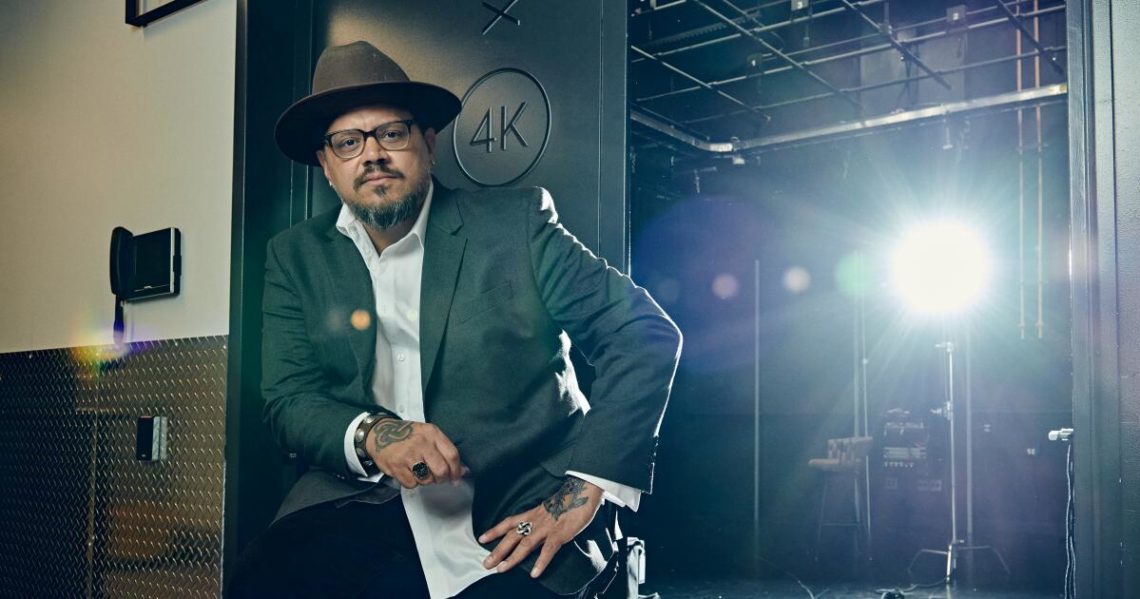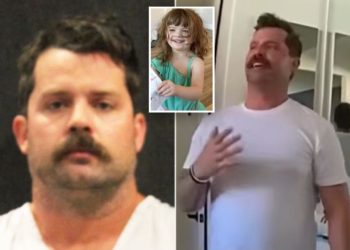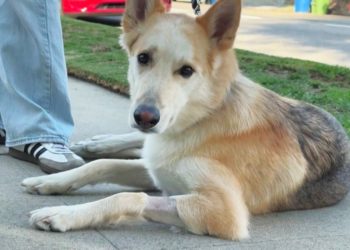Sterlin Harjo perfected the “art of the hang” with the co-creation of his first television series, “Reservation Dogs.” The FX drama followed a group of Indigenous teens living on a fictional Oklahoma reservation, turning their everyday routine into high art — and is one of the best television shows of the 2020s.
Now, Harjo, 45, is tackling another type of genre: crime. His forthcoming series “The Lowdown,” premiering Sept. 23 with two episodes on FX, follows self-proclaimed “truthstorian” Lee Raybon (Ethan Hawke) on a mission to unearth buried truths about Tulsa’s problematic history while exposing present-day corruption. He’s a disheveled figure who drives around town in a tattered van and lives above the rare bookstore that he also happens to own. But when his latest exposé for a local publication calls into question a prominent Tulsa family, his investigation takes him on a dangerous road from the city’s seedy underbelly to its highest corridors of power.
“‘Rez Dogs’ was my love letter to rural Oklahoma and where I grew up. ‘The Lowdown’ is my love letter to Tulsa, where I currently live,” says Harjo, who produces, writes and directs on the new series. “You see the beauty and the darkness. You see everything.”
The eight-episode drama, best described as Tulsa noir, also stars Oklahoma expats Tim Blake Nelson, Jeanne Tripplehorn and Tracy Letts as well as Keith David. Appearances by “Rez Dog” alumni include Kaniehtiio Horn (a.k.a. the Deer Lady).
Harjo, who is a citizen of the Seminole Nation of Oklahoma and is of Muscogee descent, spoke with The Times about his love for Oklahoma, the challenges of following a celebrated show like “Reservation Dogs” and how “The Lowdown” is loosely based on his own experience working with a guerrilla journalist.
“Rez Dogs” was such an exceptional series that garnered critical acclaim across all four seasons. With “The Lowdown,” was it hard to not compete with that previous success?
I didn’t think about it. My experience in this industry has been people telling me that whatever the thing is that I want to make can’t be made, and me thinking, I’m going to make it anyway, then forging ahead. Then it finds an audience, and people enjoy it. I had pitched “Rez Dogs” a few different times, and it was always soft pitches because I was nervous of being laughed out of the room. No one was interested. But having the confidence of my friend [“Rez Dogs” co-creator and writer] Taika Waititi and FX … they were open to the way that we told the story. I think they were kind of blown away. So they made it. They never said no. But I’ve had many ‘no’s and many eye rolls.
Hawke plays Lee Raybon in “The Lowdown,” a figure who is obsessed with getting to the bottom of things, to the point where he neglects many other aspects of his life. What inspired the creation of that character?
The story is fictional, but the character was inspired by someone I worked with named Lee Roy Chapman at This Land Press magazine. He was very much a soldier for truth and I would ride shotgun and make these videos about the underground, unknown histories of Tulsa. The series was called “Tulsa Public Secrets.” We were this startup, full of piss and vinegar, trying to tell the truth and write about our community and make documentaries about our community. It was about a pent-up need for truth in this city. That push to tell the truth and find truth and tell our story and create a narrative around us. It gave us and the city an identity, something to hold on to.
“The Lowdown” unfolds at a really brisk pace, yet it also has the kick-back vibe of “Rez Dogs.”
There’s the art of the hang, where the genre is people hanging out. Look at “Rez Dogs” or “Dazed and Confused.” There’s an art to hanging and being with characters, and it feels OK to just sit there with them. I think “The Lowdown” has a good balance of that, where you could just hang with [Raybon] on his block. But there’s also this unfolding story so things never get boring.
Did the making of “The Lowdown” and “Rez Dogs” overlap?
No, but it was toward the end of “Rez Dogs” that I dusted a script off that was like 10 years old. It was a feature [film], but I thought I would love to do a crime show, so I just made it into an hourlong pilot, and it became “The Lowdown.”
Ethan Hawke starred in the last season of “Rez Dogs.” Is that how you two connected?
I had a mutual friend who introduced us because Ethan had written a graphic novel about the Apache Wars and Geronimo. It was originally a script that he couldn’t get made in Hollywood because it was told from the Native side of things. Out of frustration, he made it into a graphic novel. I read it and was interested in adapting it for a show. I met up with Ethan, and I pitched my idea of the adaptation and he loved it. We spoke the same language. So we started writing together and our friendship came out of that. And then “Rez Dogs” came out, and he wrote me to say that he really loved it. He said, “If you ever have anything for me …” Of course I’ll write something [for him]! So he became Elora’s dad.
“The Lowdown” was shot on location in Tulsa and you used much of the same crew from “Rez Dogs.” But I also hear your own family was involved, as well as some “Rez Dogs” alums.
The crew and I know how to work together at this point. It’s like a big family. And my [actual] family was there. My brother was doing locations. My kids came on set. We’re shooting on some of my land. My dad was hired to brush-hog it. My mom’s an extra. There’s a couple of “Rez Dogs” cameos. You’ll see Willie Jack [Paulina Alexis] in the opening. Graham Greene’s in it. But I don’t know how much I’m supposed to say yet. I better not say …
You started out as an indie filmmaker. Can you talk a little about that journey to series TV?
I’ve always felt like an outsider. I’m a small-town Native kid from rural Oklahoma. I never felt like I had a foot in this industry. I was an independent filmmaker forever. I sometimes felt like everything was against me, like there’s no money, and I was in Tulsa, Oklahoma, so it felt like the industry at large didn’t care about the work I was doing.
Before “Rez Dogs,” I never worked in TV and I never worked for anyone else doing films. I only had the education I got with the Sundance Directors Lab, which is the most freedom any filmmaker is ever going to have. Then I was lucky enough to make films that were so low-budget. It meant the stakes weren’t high because no one saw them. So if they hated them, I wasn’t destroyed.
Your films and previous series were rooted in Indigenous viewpoints and experiences. Those cultures have been so misrepresented across all aspects of American entertainment. What gave you the confidence to keep pitching those stories?
I attribute that to not having anything to lose. “Rez Dogs” came at this time when I thought I was going to have to move on. I was at the end of my career road, where I was about to start a nonprofit or find the next chapter of what to do. I had been the freelance filmmaker for a long time and it just got hard to pay bills. With “Rez Dogs,” it was like, I could try to play it safe right now or I could swing for the fences. I had seen opportunities come and go, but I have this shot and this one at-bat. I need to just go for it. Luckily, FX is a place that allowed me to do that. And I did it. Luckily, I’d been making independent films for years and figured out my voice, so it wasn’t hard to ground “Rez Dogs” in my voice.
Were there outside influences that also helped you get there?
“Atlanta” and “Louie.” Those cracked my mind open to what TV could be and allowed me in. Because to tell an Indigenous story about a community, I had to go to different places. If I was just focused on the kids [in “Rez Dogs”], it would be one thing and that’s it. I needed to expand. And so [it was] taking some of what “Atlanta” did but having this relay, like passing the baton off to different segments of the [Indigenous] community. I was also inspired by “The Wire.”
And “Rez Dogs” was a story that I always wanted to tell. Taika [who is of Maori descent] and I would end up talking about how similar they were from both of our homes, and if you could just kind of capture what it felt like to hear your aunts and uncles telling stories and lying and exaggerating and talking about mythology and superstitions. If you could capture all that, as Indigenous people, that’s what we wanted and craved.
The key to that was making it about this community, but it was a bit of a Trojan horse. It’s about these teenagers that are dealing with life and that’s a subject that everyone knows. So you start with that, and then expand out once you have people on your side.
The motto you mentioned — “Nothing to lose” — can you still use it now that you’ve had some success, and if so, why does it still work for you?
I think it has to do with people close to me dying when I was young. It’s a big community, a big family, and I was always at a funeral. I’ve been a pallbearer like 15 times or something. It gave me the sense that you can’t be afraid to put stuff out there. I’ve always had a way of diving off a cliff. It’s like, if everything fails after this, I’m OK with it. If everything dries up, that’s cool. At least I gave it a shot. This is going to sound hippie-dippie, but I think the energy that it takes to dive off a cliff and just go for it is an act in itself that creates energy. Something good will come out of it. So as long as you’re moving forward, something comes out of it.
The post Why ‘Rez Dogs’ creator Sterlin Harjo made a love letter to Tulsa and its contradictions appeared first on Los Angeles Times.




